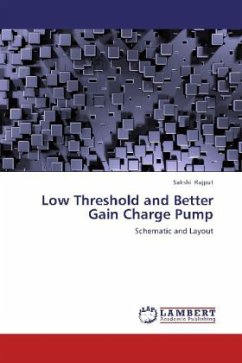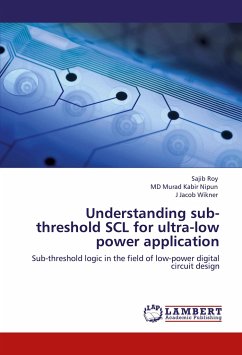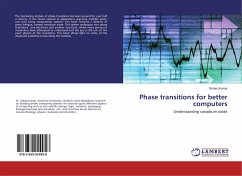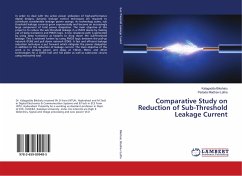
Low Threshold and Better Gain Charge Pump
Schematic and Layout
Versandkostenfrei!
Versandfertig in 6-10 Tagen
32,99 €
inkl. MwSt.

PAYBACK Punkte
16 °P sammeln!
A Charge pump circuit provides a voltage that is higher than the voltage of the power supply or a voltage of reverse polarity. Increased voltage levels are obtained in a charge pump as a result of transferring charges to a capacitive load, and do not involve amplifiers or regular transformers. Charge pumps usually operate at a high- frequency level in order to increase their output power within a reasonable size of total capacitance used for charge transfer. This operating frequency may be adjusted by compensating for changes in the power requirements and saving the energy delivered to the cha...
A Charge pump circuit provides a voltage that is higher than the voltage of the power supply or a voltage of reverse polarity. Increased voltage levels are obtained in a charge pump as a result of transferring charges to a capacitive load, and do not involve amplifiers or regular transformers. Charge pumps usually operate at a high- frequency level in order to increase their output power within a reasonable size of total capacitance used for charge transfer. This operating frequency may be adjusted by compensating for changes in the power requirements and saving the energy delivered to the charge pump. Among many approaches to the charge pump design, the switched-capacitor circuits such as Dickson charge pump are very popular, because they can be implemented on the same chip together with other components of an integrated system. An extensive research focused on the design and timing scheme of Dickson, Static, Dynamic charge pump had been accomplished. A better charge Pump is proposed which have a better gain and threshold than other charge pumps discussed.












